Research
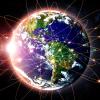 CU Boulder researcher Steve Miller argues for deeper insight into how people understand risk before shocks, especially those related to climate change, happen in global systems.
CU Boulder researcher Steve Miller argues for deeper insight into how people understand risk before shocks, especially those related to climate change, happen in global systems.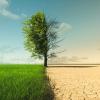 CU Boulder’s Max Boykoff documents how the industry-funded Heartland Institute has morphed in the past decade.
CU Boulder’s Max Boykoff documents how the industry-funded Heartland Institute has morphed in the past decade.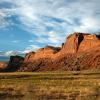 By rubbing a spear head against stone to form or sharpen it, a groove is gouged very similar to the grooves beside the Procession Panel.
By rubbing a spear head against stone to form or sharpen it, a groove is gouged very similar to the grooves beside the Procession Panel.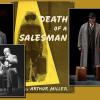 CU Boulder theatre professor Bud Coleman reflects on Arthur Miller’s Pulitzer-winning play and why it’s a story that still has meaning.
CU Boulder theatre professor Bud Coleman reflects on Arthur Miller’s Pulitzer-winning play and why it’s a story that still has meaning.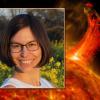 A recent CU Boulder study suggests that confined flares are more efficient at heating plasma and producing ionizing radiation than comparable eruptive flares.
A recent CU Boulder study suggests that confined flares are more efficient at heating plasma and producing ionizing radiation than comparable eruptive flares.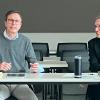 German historian Paul Nolte discusses what populist movements in the United States and Europe mean for liberal democracies during CU Boulder colloquium.
German historian Paul Nolte discusses what populist movements in the United States and Europe mean for liberal democracies during CU Boulder colloquium.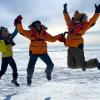 Cassandra Brooks, whom The Explorers Club has honored as an ‘extraordinary person’ doing ‘remarkable work to promote science and exploration,’ gives onsite lessons on the ‘vital’ ecosystem.
Cassandra Brooks, whom The Explorers Club has honored as an ‘extraordinary person’ doing ‘remarkable work to promote science and exploration,’ gives onsite lessons on the ‘vital’ ecosystem.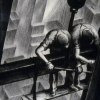 ‘(Art)work: Systems of Making’ opens with a celebration Friday afternoon at the CU Art Museum.
‘(Art)work: Systems of Making’ opens with a celebration Friday afternoon at the CU Art Museum.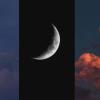 For the first time since 1972, NASA is putting science experiments on the Moon in 2024. And thanks to new technologies and public-private partnerships, these projects will open up new realms of scientific possibility
For the first time since 1972, NASA is putting science experiments on the Moon in 2024. And thanks to new technologies and public-private partnerships, these projects will open up new realms of scientific possibility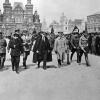 This year is the 100th anniversary of the death of the Soviet Union’s first communist leader, whose legacy in Russia and former Soviet republics is complicated.
This year is the 100th anniversary of the death of the Soviet Union’s first communist leader, whose legacy in Russia and former Soviet republics is complicated.

